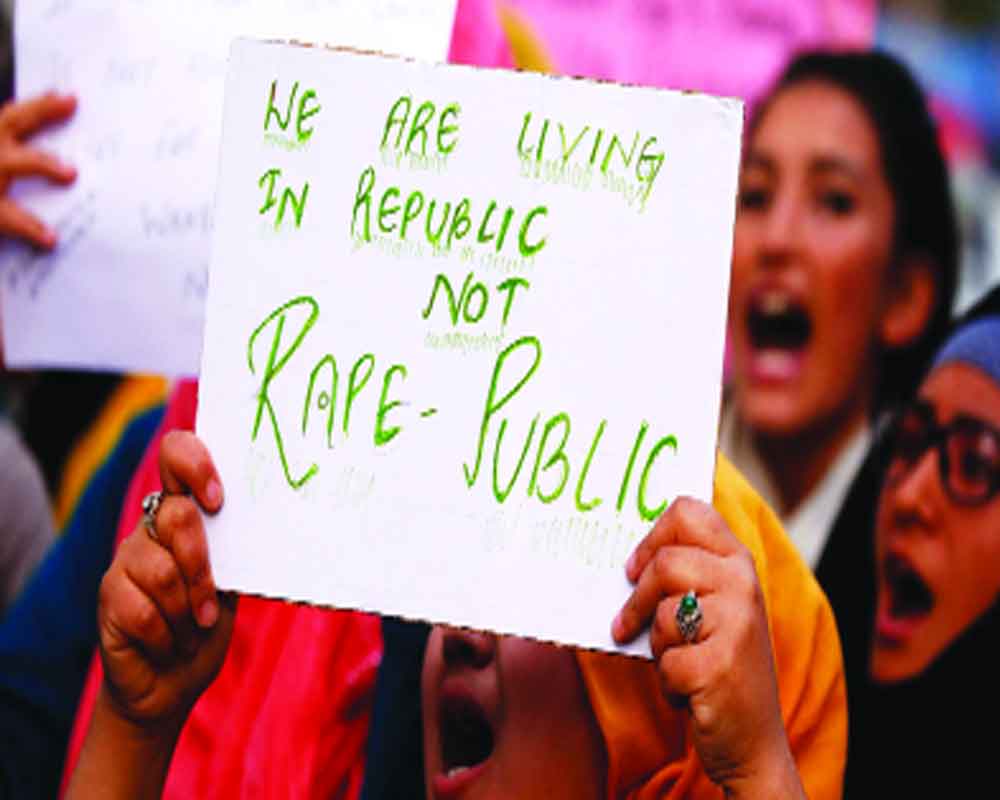The Delhi HC ruling, allowing rape survivors the right to decide bail for their tormentors, is needed
Remember the eight-year-old Kathua rape victim, who was murdered so that she wouldn’t be able to identify her tormentors? Or the 14-year-old Dalit girl in Muzaffarnagar district, who was burnt alive after being violated? The list of rape-murders is long and hangs like a Damocles’ sword over those who survive the ordeal and might be thinking of fighting back. It is intended to scare them away from the criminal justice system. The survivors think twice about even registering their cases as reports pour in of intimidation, police apathy, forced compromises, out-of-court settlements, dragged out cases besides societal slurs and condemnation. And when powerful men are among the accused, leave alone justice, even their lives are in danger. That’s because the accused can avail bail, roam free and use resources to snuff out all charges. Given this grim scenario, it is indeed laudable that Delhi High Court Chief Justice DN Patel has sought to protect survivors, making it mandatory for courts to ensure they are present at the time of bail hearing of the accused. This would give them a fighting chance to argue their case, put the accused behind bars and shield themselves from death threats. The court has built in procedural insurance, making it mandatory for the investigating officer to notify the girls the moment any of their violators moved for bail. It is a sad reflection on our criminal justice system that Justice Patel had to issue this directive, almost reinterpreting the amendments made to Section 439 of the Criminal Law in 2018. Under this, courts must notify the public prosecutor within 15 days of receiving the bail plea from the accused. Not just this, it is also obligatory for the victim to be present at the hearing, either in person or through her lawyer. Yet very few survivors are aware of these existing rights. It was rampant non-compliance of this year-old provision that forced Justice Patel to define what it means in terms of execution. One hopes the order is respected by every law officer.
If anybody has any doubt about why a campaign on protecting survivors is necessary, just consider the recent example of the law student who accused former Union Minister Swami Chinmayanand of rape. While the police and State administration dragged their feet to arrest him till she publicly appealed to Uttar Pradesh Chief Minister Yogi Adityanath, they were very quick in arresting her for extortion. The girl was also denied bail by the court and sent to 14 days’ judicial custody instead. Chinmayanand is on break, in “hospital.” If this isn’t an attempt to turn the case on its head and put pressure on the woman to withdraw her petition against a powerful man affiliated with the ruling party, then what is? This comes close on the heels of the Unnao rape case, where the girl, in a desperate bid to get justice a year after her horror, tried to immolate herself outside the CM’s residence. Before this she had kept quiet. Yet she paid for speaking out loud. Half of her family and witnesses were dead before the rapist, Kuldeep Sengar, was taken into custody. It is precisely because of the belief that there’s always a loophole in the legal system to be exploited that people like Chinamayanand and Sengar get away. According to National Crime Records Bureau, around 100 sexual assaults are reported every day. The actual number of attacks is far higher with a Government survey finding that 99.1 per cent cases of sexual violence go unreported due to fear and coercion.
























